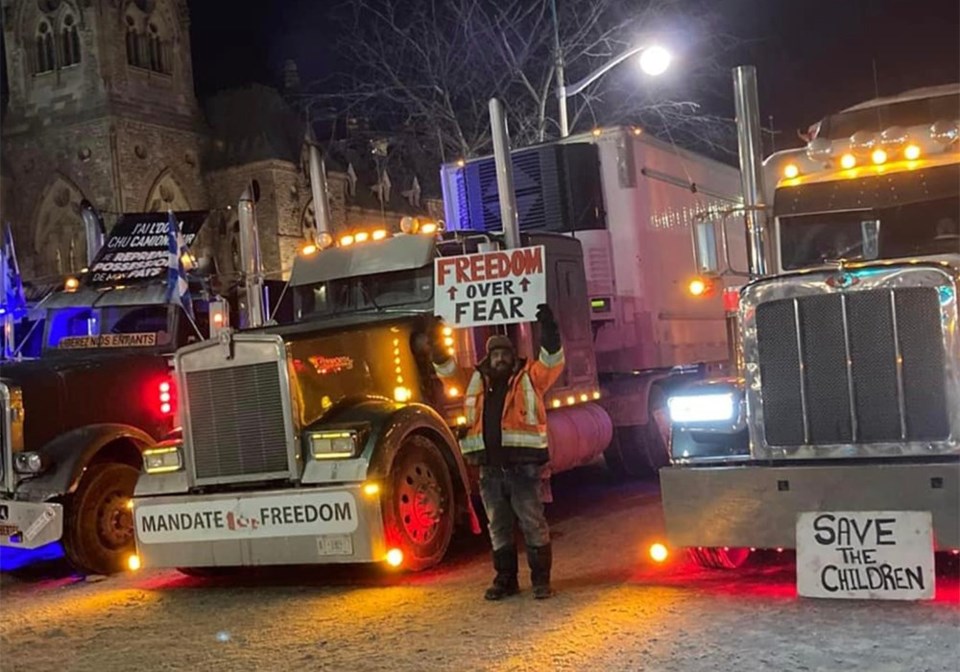On 14 February 2022, the Liberal government of Justin Trudeau invoked the Emergencies Act to deal with protesters in Ottawa. On 23 January 2024, the Federal Court ruled in Canadian Frontline Nurses v. Canada that use of the act was unreasonable.
On its face, it is a victory for those opposed to the use of the act.
That being said, the federal government has announced it is going to be appealing it and after reading through the ruling it is clear that the Federal Court was not impressed by a number of the arguments made by the applicants, even going so far as to say that “the private interest litigants were not as capable of marshalling the evidence and argument in support of their applications” (s.371), adding that if it was not for the involvement of the Canadian Civil Liberties Association (CCLA) and the Canadian Constitution Foundation (CCF) that they might have lost the case.
Indeed, it goes on to say that Kristen Nagle, the Canadian Frontline Nurses (CFN), Jeremiah Jost, and Harold Ristau “lacking standing to seek judicial review of the decision [to use the Emergencies Act] and their applications are dismissed for that reason” (s.373).
In other words, if it had just been them making the case it would have been dismissed. The court was also quite clear that arguments about whether the Emergencies Act was constitutional were without merit and irrelevant to what occurred (s.374).
And - this part is perhaps more troubling - when it came to cost, since neither the CCLA nor the CCF asked for any, they will receive none.
As for the other applicants, only Edward Cornell and Vincent Gircy will receive any, and then at most for the hearing.
In its view, the preliminary steps Cornell and Gircy took prior to the hearing are “misguided” and “largely irrelevant” (s.376).
As for payment, they just have to work out “reasonable cost award” with Ottawa, and if that fails, return to the court within thirty day for another ruling. Nagle, the CFN, Jost, and Ristau are out of luck as their cases were dismissed.
I am a realist and as Ben Shapiro likes to say, “facts don’t care about your feelings.”
It was clear in February 2022 that the federal government was going to use the Emergencies Act to remove the protesters. It was also clear that the only legal recourse the protesters would have would be litigation.
But it took almost two years for this ruling, and if the Supreme Court hears an appeal, it will more than likely be years still before the matter is settled. Adding insult to injury, six of the eight applicants have not received and/or have been denied cost, meaning they are paying the price of standing up for their rights.
As for the other two, if the Supreme Court hears an appeal, it is more than likely that they will not see a dime any time soon. Is it fair?
Well as a realist I can say life is not fair, and this reality brings up all those people who were negatively impacted by their involvement – real or perceived – in the protest.
The Federal Court has done nothing more than say the federal government was not justified in invoking the Emergencies Act.
It has not mended relationships ruined by the protest or given anyone their job and/or business back.
It has not fixed the financial situation of anyone who had their bank accounts frozen, and you can bet the response of every financial institution that froze accounts was to work with their lawyers to craft a statement that basically says they were doing as told.
And finally, the Federal Court has not removed Justin Trudeau from office. If anything, it was quite clear that it was sympathetic to him and his federal government (s.370).
The case might help those currently suing the federal government and/or facing charges connected to the protest.
It might not, though, especially if it is heard by the Supreme Court.
And while the federal government may one day make an apology – they never apologized for the invoking the War Measures Act during the October Crisis – and/or provide compensation, it is unlikely anyone in the Justin Trudeau government will be receive a personal punishment and/or make a personal apology.
Life’s not fair.
Daniel Sims is a member of the Tsay Keh Dene First Nation and a professor in the First Nations Studies program at the University of Northern B.C.



